Space
Sign up for our newsletter
We summarize the week's scientific breakthroughs every Thursday.
-
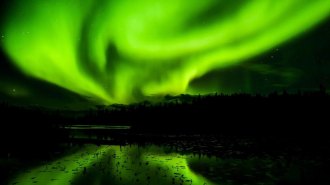 Physics
PhysicsAuroras form when electrons from space ride waves in Earth’s magnetic field
New lab results confirm that auroras are triggered by disturbances in Earth’s magnetic field called Alfvén waves.
-
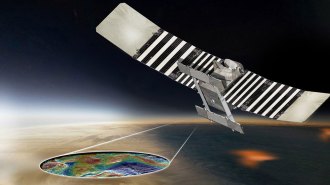 Planetary Science
Planetary ScienceNASA will be heading back to Venus for the first time in decades
Two newly selected missions, VERITAS and DAVINCI+, will explore the history of the planet's water and habitability.
-
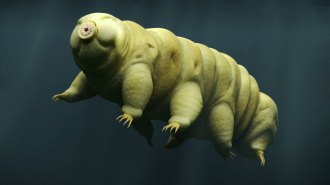 Life
LifeEven hard-to-kill tardigrades can’t always survive being shot out of a gun
A recent experiment put tardigrades’ indestructibility to the test by firing the critters at speeds up to 1,000 meters per second.
-
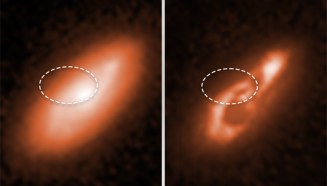 Astronomy
AstronomySome fast radio bursts come from the spiral arms of other galaxies
Tracking five brief, bright blasts of cosmic radio waves to their origins suggests their sources form quickly in regions with lots of star formation.
-
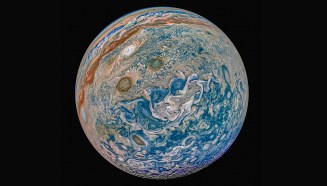 Planetary Science
Planetary ScienceLaser experiments suggest helium rain falls on Jupiter
Compressing a hydrogen and helium mixture with lasers shows that the two elements separate at pressures found within gas giant planets.
-
 Science & Society
Science & SocietyA new memoir tells the life story of NASA ‘hidden figure’ Katherine Johnson
"My Remarkable Journey" gives the backstory of NASA mathematician Katherine Johnson, the central character of the 2016 film "Hidden Figures."
-
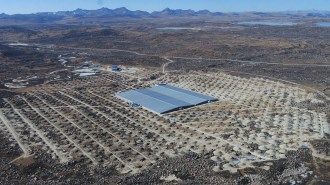 Astronomy
AstronomyRecord-breaking light has more than a quadrillion electron volts of energy
Hundreds of newly detected gamma rays hint at cosmic environments that accelerate particles to extremes.
-
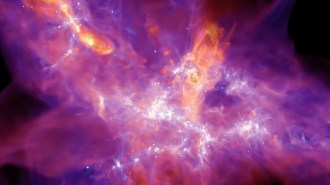 Astronomy
AstronomyWatch this beautiful, high-resolution simulation of how stars are born
The STARFORGE simulation follows a giant gas cloud as it collapses into new stars, accounting for all the phenomena thought to influence the outcome.
-
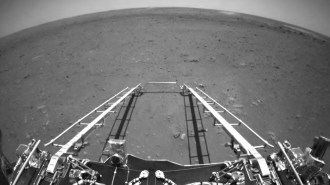 Space
SpaceChina’s first Mars rover has landed and is sending its first pictures
The country just became the second nation, after the United States, to successfully land a rover on Mars. Its rover will search for subsurface ice.
-
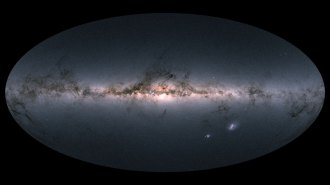 Astronomy
AstronomyThe Milky Way may have grown up faster than astronomers suspected
Most of the galaxy’s disk was in place before a merger 10 billion years ago with a dwarf galaxy called Gaia-Enceladus/Sausage, a new study suggests.
-
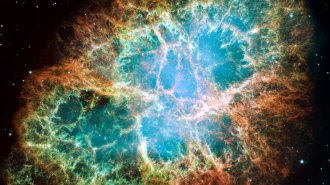 Astronomy
AstronomyA study of Earth’s crust hints that supernovas aren’t gold mines
Supernovas aren’t the main source of gold, silver and other heavy elements, a study of deep-sea crust suggests.
-
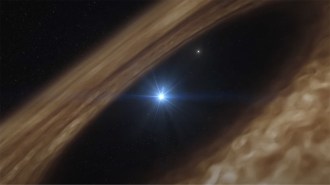 Space
SpacePlanet-forming disks around stars may come preloaded with ingredients for life
Methanol spotted around a hot, young star probably originated in interstellar space, suggesting some chemistry for life may start before stars form.